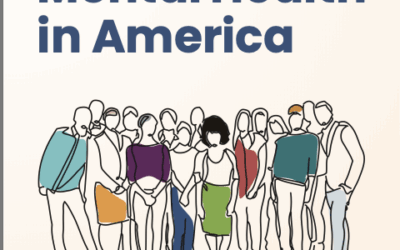Mental Health America’s affiliate in Charlottesville, VA, Partner for Mental Health, has been leading an effort to get the CDC to update their list of high risk conditions for COVID morbidity and mortality to include mental health conditions. Their advocacy succeeded! The Centers for Disease Control made the announcement yesterday. Partner for Mental Health’s examples of actual people living with mental illness experiencing real harm because of the delay in updating the CDC list was instrumental in getting the list updated.
While this effort started in response to a specific local need to help a client access housing, their partnering with MHA National and others resulted in national implications for COVID related resource allotment. See their press release below for more information.
For Immediate Release
Contact: Anna Mendez, Partner for Mental Health
Phone: (804) 238-4526
Email: anna@partnerformentalhealth.org
Charlottesville advocacy organization leads successful effort to update CDC high-risk list for COVID to include mental illnesses
CHARLOTTESVILLE—While helping a lifelong resident of Charlottesville navigate the community’s transitional and supportive housing options after he was released from a period of incarceration caused by his mental illness, Partner for Mental Health stumbled upon a policy that caused them to take pause.
Among one of the most promising housing options was the newly opened Premier Circle shelter (the former Red Carpet Inn), which is managed by People and Congregations Engaged in Ministry (PACEM) in partnership with the Piedmont Housing Alliance, the Thomas Jefferson Area Coalition for the Homeless, and Virginia Supportive Housing.
“Premier Circle was intended to serve medically vulnerable individuals experiencing homelessness, and that admission criteria was based on the Center for Disease Control’s guidance on medical conditions that placed individuals at increased morbidity or mortality risk due to COVID,” said Anna Mendez, Partner for Mental Health executive director.
“Knowing what we know about the negative impact that mental illness can have on physical health, we were surprised that serious mental illnesses were not included on CDC the list.” Accordingly, Mendez sought to validate her hunch that the omission was a likely oversight as it is well documented that individuals with serious mental illness face a greater risk of developing a range of chronic physical conditions compared to the general population.
“We researched the issue and found two meta-analyses published in JAMA Psychiatry since the last time the CDC list was updated, both of which showed an increase in morbidity and mortality from COVID for people with certain mental illnesses,” said Mendez. “As the Charlottesville-area affiliate of the national organization Mental Health America (MHA), we reached out to MHA to elevate this issue on the federal level.”
Together with the Treatment Advocacy Center, Partner for Mental Health and MHA were able to bring the issue of including these conditions on the CDC list to the attention of Substance Abuse and Mental Health Services and the U.S. Department of Health and Human Services. Partner for Mental Health’s examples of actual people living with mental illness experiencing real harm because of the delay in updating the CDC list was instrumental in getting the list updated.
While the effort to have the CDC list updated to rightfully include mental illness was triggered by a local need, it will have state and national level ramifications in terms of resource allocation. Not only are social service providers using the list to determine eligibility for certain programs, but COVID vaccination initiatives are also intimately tied to list inclusion. Prior to the list being updated, people with mental illness were not eligible for the COVID vaccine booster than research shows is necessary for people with high risk conditions.
###



